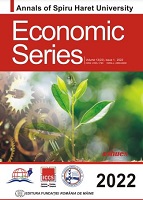Risk Financing Strategy and Project Success: Evidence from Building Contractors in Lagos State, Nigeria
Risk Financing Strategy and Project Success: Evidence from Building Contractors in Lagos State, Nigeria
Author(s): Sunday Adekunle Aduloju, Oluwaleke Ebenezer AkindipeSubject(s): Business Economy / Management, Micro-Economics
Published by: Editura Fundaţiei România de Mâine
Keywords: financing strategy; contractors; environment stakeholders; risk management; construction industry;
Summary/Abstract: The aim of the study is to evaluate the significant effect of risk financing strategy on project success among building contractors in Lagos State with focus on risk transfer strategy and risk retention strategy on project success among building contractors in Lagos State, Nigeria. This study employed a descriptive survey research design. The population of the study comprises all registered builders in Lagos State which are 2,422 builders. The study adopted a convenience sampling method. The total sample used for the study is 170 respondents. The study employed a struct ured questionnaire as its instrument of data collection. Data collected were analysed using Statistical package for social science students (SPSS) and regression analysis The regression result showed a strong positive relationship between risk transfer strategy and project success among building contractors in Lagos State which is indicated by the R value (.701) at 5% significance level and it is statistically significant at .000 which is less than (P<0.05). The second hypothesis regression result showed a strong positive relationship between risk retention strategy and project success among building contractors in Lagos State which is indicated by the R value (.701) at 5% significance level and it is statistically significant at .000 which is less than (P<0.05) . it was concluded that The compliance level of the contractors with regards to the stipulation of section 64(1), No.37 of Insurance Act 2003 was very low compared to their high level of awareness with the stipulation. The compliance level was less than 20% compared to the awareness level that was more than 20%. It was recommended that all built environment stakeholders should become more involved in the implementation of risk management. Their early involvement will facilitate a better understanding of each party’s roles and enhance collaboration and communication within the Nigerian construction industry.
Journal: Annals of Spiru Haret University. Economic Series
- Issue Year: 22/2022
- Issue No: 1
- Page Range: 551-570
- Page Count: 20
- Language: English

